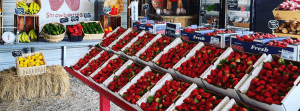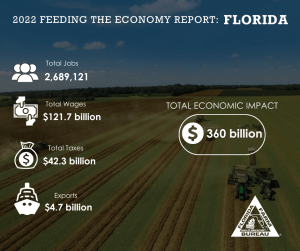May 2022 FloridAgriculture eNewsletter
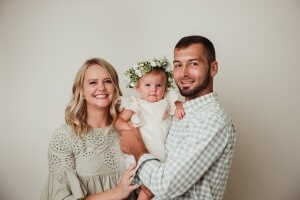 Cody and Courtney Darling
Cody and Courtney Darling
YF&R State Leadership Group, District 2
First generation perennial peanut farmers Cody and Courtney Darling have had an unconventional path on their journey to building a farming business and legacy.
The couple grew up with different backgrounds. One in farming, one without. Courtney grew up in the city of Tampa, where her only introduction to farming was at her school’s FFA chapter. Cody grew up in farming. His dad, a retired veterinarian, owned a 100-acre hay farm in Michigan and a 55-acre farm in Indiana. In addition to growing hay, Cody spent a majority of his life around horses.
Their passion for agriculture merged when their paths crossed at the University of Florida where they were both actively involved in many of numerous clubs with a mutual love for agronomy.
Their relationship blossomed during their overlapping time at North Florida Holsteins where Courtney was an intern and Cody was employed.
Shortly after graduating college, the couple were married, and moved to Gilchrist County where their farming career slowly took off after a few peanut jokes turned into a realization of peanuts as a livelihood.
“{Growing peanuts} first started out as a joke, and then we found property with perennial peanuts already planted on it” said Courtney. “We’re both into forages and I really got into it, even in my weed sciences program during college.”
Finding and purchasing land was an indication that the Darlings were heading in the right direction. In addition to their full-time jobs, the pair bought their first plot of land in 2017.
“Our farm started when we purchased peanut sprigs in Bell and we planted an acre by hand,” recalls Cody. “Every couple of years we would spread those. Toward the end of 2017 we bought 20 acres with peanuts already on it and cleared that land. I was working for Generation Farms at the time and gained a wide spread of knowledge about different row crops.”
What started with one-acre quickly grew to 20, and by the end of 2019 they owned nearly 70 acres of perennial peanuts. As homage to Cody’s childhood, the Darlings diversified their crops to perennial peanuts and hay.
“Growing up farming hay, alfalfa was my favorite crop,” said Cody. “If it wasn’t for Courtney, I wouldn’t have moved into perineal peanuts. It was her idea. It’s a high quality forage and there’s a high demand for it. As a farmer, it was an easy niche to get into.”
Recently, they have downsized their hay operation to 40 acres and have dedicated seven acres to a feed peanut crop. They are growing two acres of Valencia peanuts and five acres of Virginia peanuts. Virginia peanuts are harvested while they are still green and are used for boiled peanuts.
As the Darlings grew their farm business, they leaned on other farmers to help and understood the importance of networking with other young farmers. They decided to start a Young Farmers & Ranchers Group in Gilchrist County as a way to share ideas and network with fellow farm families. They leaned on an Alachua County Young Farmers & Ranchers Group board member for guidance.
The couple has since moved to Suwannee County, after Cody received a promotion to serve as the regional agronomist for Black Gold Farms. Since moving to Suwannee County, the Darlings have been focused on starting and growing a new YF&R group.
“There are young people to be a part of the group, but it’s been hard because COVID got in the way, said Cody. “It’s a very struggling experience, but that’s often part of it in this day and age.”
Despite the struggles of building a new group, the Darlings have not given up. They continue to build relationships with new friends and are developing stronger leadership skills by participating in the state Young Farmers & Ranchers Leadership Group.
“There are only a certain amount of people who love to farm and we happen to be one of the few,” said Cody. “I think that is what keeps us going and how we’re rooted in resilience. There’s not many people out there who can nor want to do what it takes to farm.”
Courtney added how important it is to her and Cody to leave a legacy for their children.
“That’s what gets me through the tough times,” added Courtney. “Some days it’s hard but it has a lot of reward and it will be worth it.”

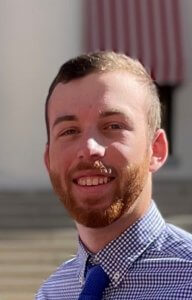 The Florida Farm Bureau’s state board of directors approved a $24,500 scholarship a year (for two years) to provide a student the opportunity to pursue a Bachelor of Science in Agricultural Studies at Warner University.
The Florida Farm Bureau’s state board of directors approved a $24,500 scholarship a year (for two years) to provide a student the opportunity to pursue a Bachelor of Science in Agricultural Studies at Warner University.
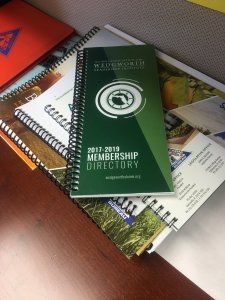
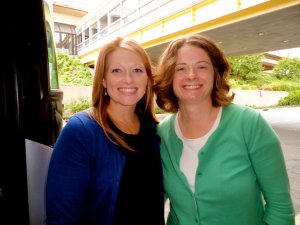 It’s an understanding she uses regularly as she advocates for 134,000 members who can’t legislate from their farms and ranches.
It’s an understanding she uses regularly as she advocates for 134,000 members who can’t legislate from their farms and ranches.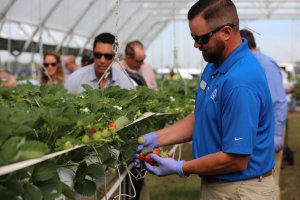
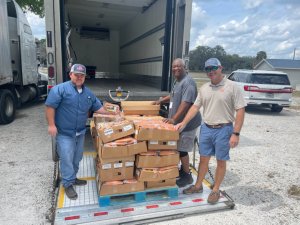 Highlands County Farm Bureau is a highly respected organization throughout its local communities because of the exemplary efforts taken to care for those in need. What started out as one simple idea has now made an enormous impact on local families in Sebring and the surrounding areas.
Highlands County Farm Bureau is a highly respected organization throughout its local communities because of the exemplary efforts taken to care for those in need. What started out as one simple idea has now made an enormous impact on local families in Sebring and the surrounding areas.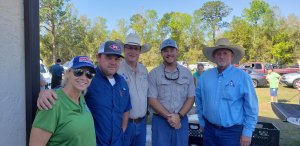
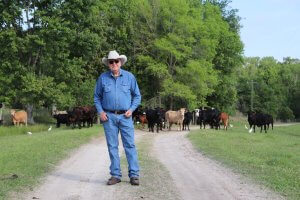 Jim Farley is a multi-generational cattle rancher from Clay County. He learned at a young age how to transform an essential job into a thriving and fulfilling career. Shortly after receiving his degree in Ranch Management from Texas Christian University and marrying the love of his life in 1969, Farley Cattle Company was born. During their 53 years of marriage, Jim and Jean have worked together to build a successful cattle, hay and timber business that spans more than 7,000 acres in North Florida.
Jim Farley is a multi-generational cattle rancher from Clay County. He learned at a young age how to transform an essential job into a thriving and fulfilling career. Shortly after receiving his degree in Ranch Management from Texas Christian University and marrying the love of his life in 1969, Farley Cattle Company was born. During their 53 years of marriage, Jim and Jean have worked together to build a successful cattle, hay and timber business that spans more than 7,000 acres in North Florida.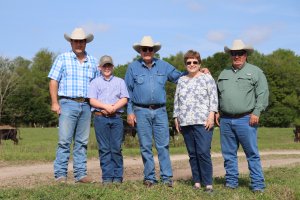 Farley is an advocate for loving what you do. His career has been dedicated to growing a successful business with hopes that his sons desire to take it over. His only request for his sons is to be happy with the path they choose. Farley firmly believes happiness is key to a long-term career and one that you won’t want to retire from.
Farley is an advocate for loving what you do. His career has been dedicated to growing a successful business with hopes that his sons desire to take it over. His only request for his sons is to be happy with the path they choose. Farley firmly believes happiness is key to a long-term career and one that you won’t want to retire from.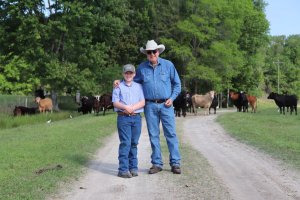
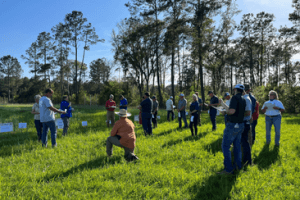 The UF/IFAS NFREC – Suwannee Valley hosted a free event on March 29, 2022 on fertilization strategies and pasture management. The group toured cool season plots and saw four varieties of bahiagrass while hearing from Columbia County Extension Agent Paulette Tomlinson and Professor of Forage Breeding and Genetics, Dr. Ann Blount.
The UF/IFAS NFREC – Suwannee Valley hosted a free event on March 29, 2022 on fertilization strategies and pasture management. The group toured cool season plots and saw four varieties of bahiagrass while hearing from Columbia County Extension Agent Paulette Tomlinson and Professor of Forage Breeding and Genetics, Dr. Ann Blount.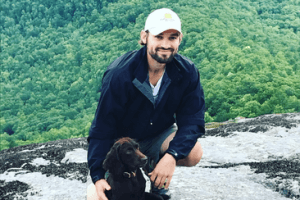 John Dooner
John Dooner